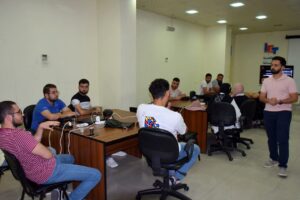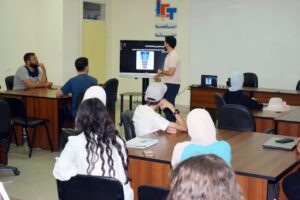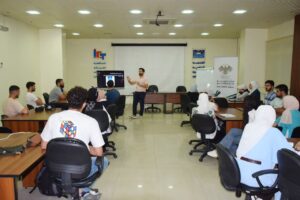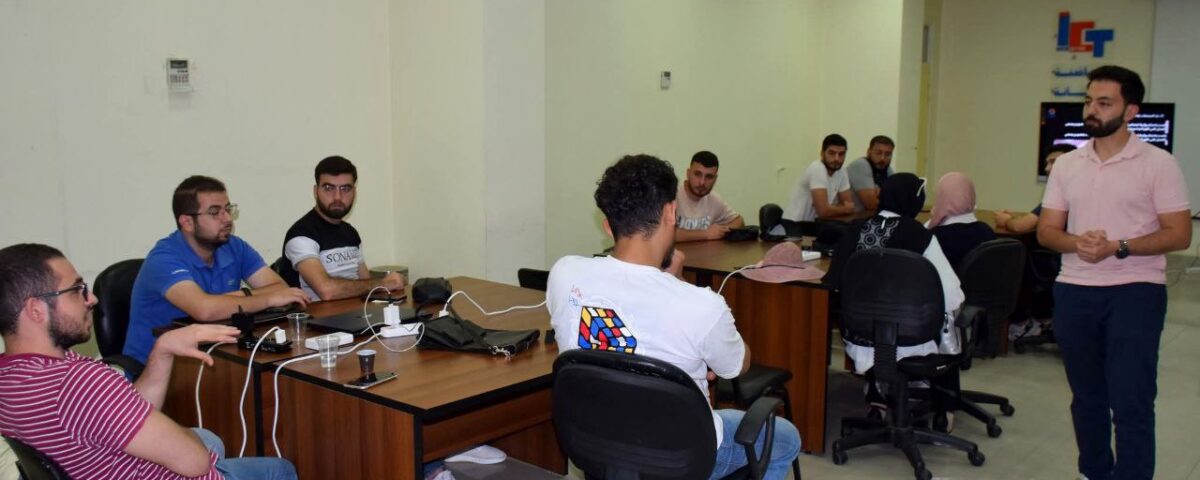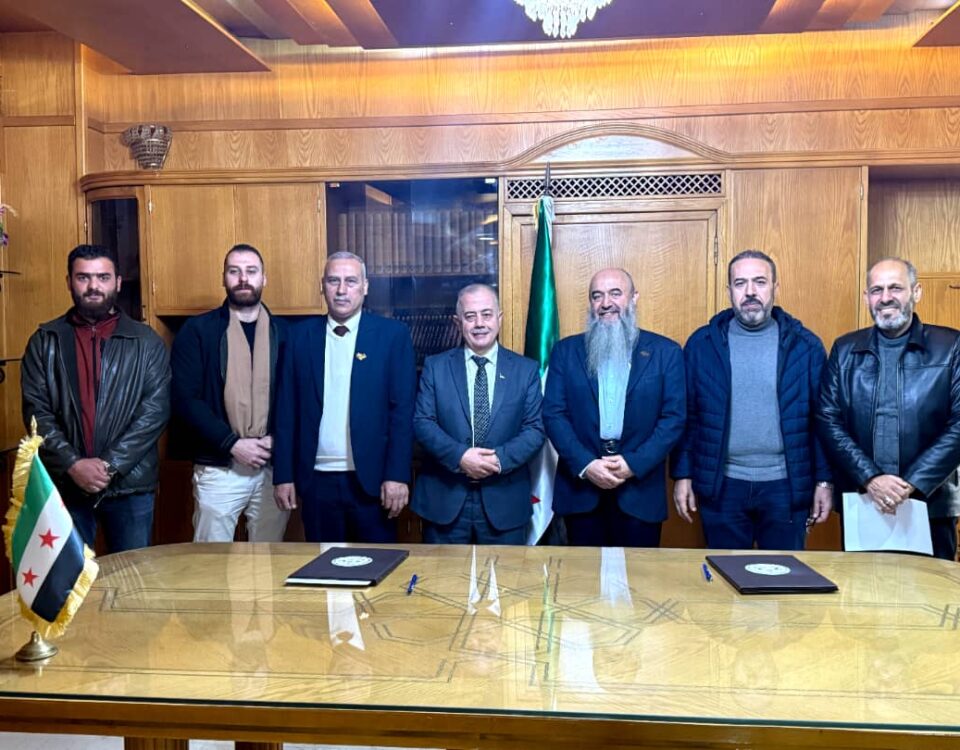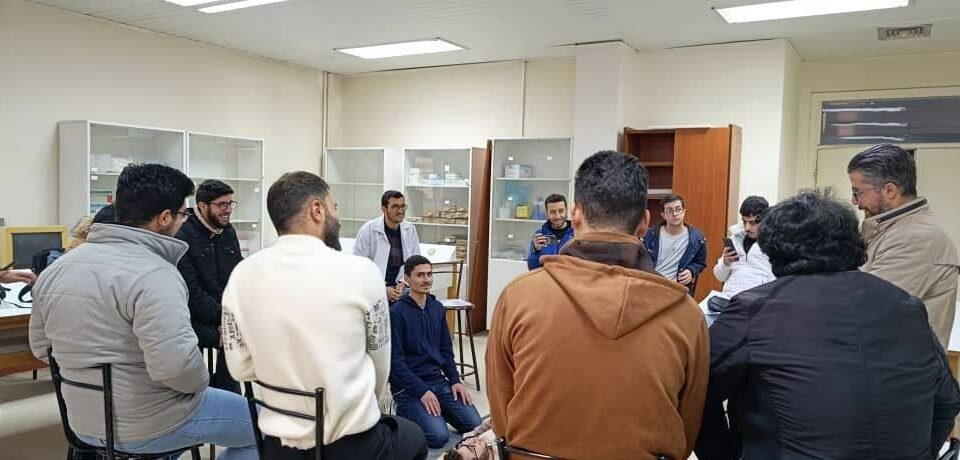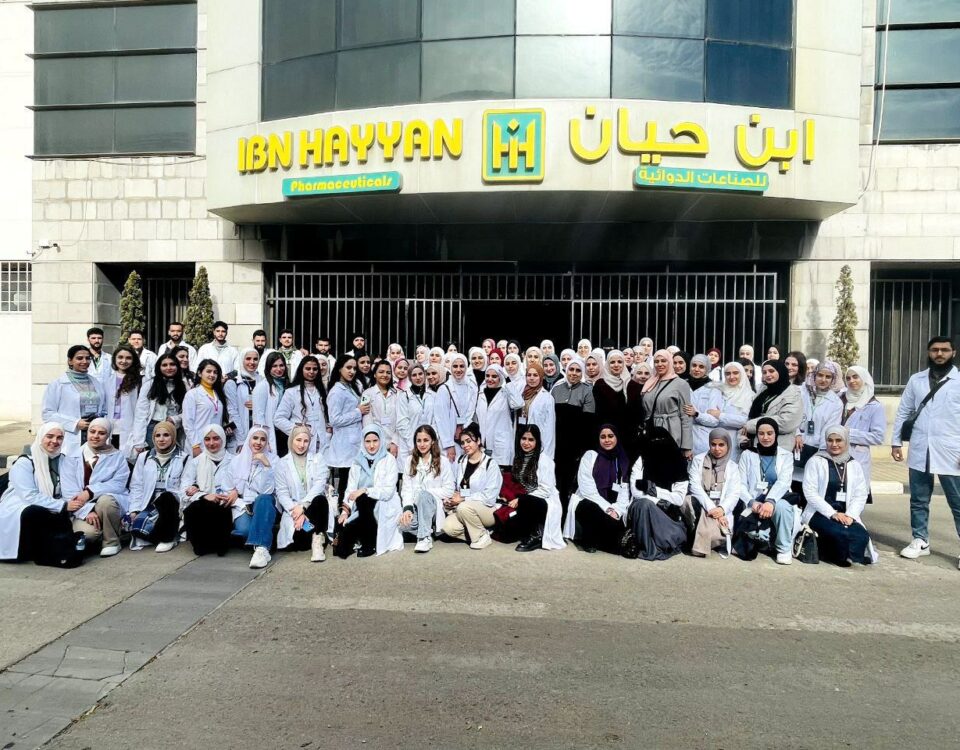The “Spark Homs” entrepreneurship camp concluded its activities at Homs University. The camp was organized by Homs Information and Communications Technology Incubator in cooperation with the university and the Student Union, in partnership with the Action For Humanity organization and Buthoor-Tech company. Thirty young men and women from various academic disciplines participated in the camp.
The camp that lasted for several days included intensive training about innovative design skills, entrepreneurial thinking, prototype development, and marketing and finance concepts, under the supervision of elite trainers from inside and outside Syria. The program concluded with presentations of the projects participants had worked on as collective work teams.
President of Homs University, Prof. Tarek Houssam ElDeen, has indicated that the camp is part of the university’s efforts to support youth initiatives by providing an environment that encourages creativity and innovation, connects academic knowledge with practical experience, and develops a generation capable of transforming challenges into realistic opportunities for growth and productivity.
For her part, Director of the Information and Communications Technology Incubator, Eng. Hala Jahjah, has explained that the camp revealed the students’ exceptional talents, stressing that the incubator will continue to support participants in establishing their own projects by providing technical consultations and connecting them with supporting entities.
Trainer Ahmed Al-Masri from Buthoor-Tech company has noted that the program adopted a graduated methodology, starting with analyzing the real- life problems facing young people, moving on to generating solutions, and ending with developing prototypes with a focus on presentation and persuasion skills. In addition, he has pointed to the importance of this type of program in creating an entrepreneurial culture among the young generation.
The international trainer and Chevening scholar, Mr. Sami Mando, has indicated that the youth participation in this camp reflected a genuine readiness to learn and engage in entrepreneurial environments. Moreover, he has explained that most participants demonstrated flexibility and a high ability to respond to the challenges of the labor market.
The students referred that the camp had an impact on developing their personal and academic skills. Reem Al-Khaled, a student from the Food Industries Institute, said that the camp provided her with a new experience by working within a diverse team and exploring ways of thinking that differed from the traditional university environment.
Student Sidra Al-Saifi, from the Department of Mathematical Statistics, has noted that the training content opened up new horizons for her to understand entrepreneurship as a method of thinking and problem-solving, not just as an economic project. She has also emphasized that gaining self-confidence and developing presentation skills were the most useful training aspects for her.
For his part, student Yahya Abdul Hadi has pointed out that his participation in the camp was a motivating step to reevaluate his academic and professional priorities, noting that the teamwork and interaction with experienced trainers changed his perspectives on many concepts.
High school graduate Abdul Majeed Salmon has explained that the camp was a completely different educational experience and that the practical and interactive training allowed him to understand new tools that helped him think in an organized, solution-oriented manner.
The camp organizers have emphasized that the results achieved constitute a foundation for developing similar initiatives targeting youth in various Syrian universities, encouraging the spread of entrepreneurship as a key driver of economic and social development. 